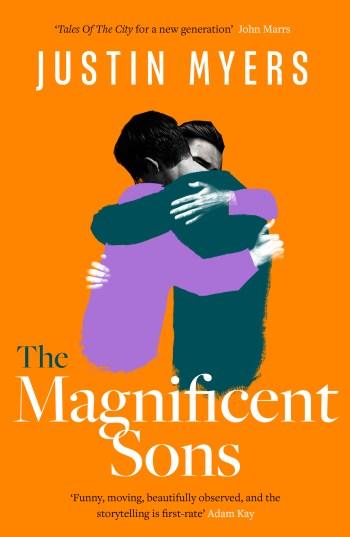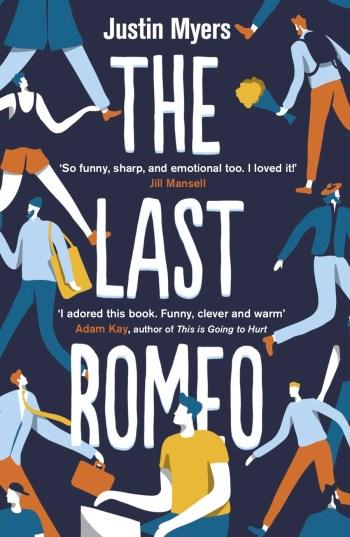Okay, confession: LGBTQ+ History Month used to make me feel a bit guilty.
It reminded me of gaps in my knowledge, exposed my insecurities and seemed to confirm what I'd suspected all along: I was bad at being a gay guy. I hadn't done the work, showed up enough, or been as plugged in as I could've been. This was all on me, of course, and mainly because I misunderstood what LGBTQ+ History Month was about. It's not a test. There's no final exam on February 28th where you're assessed on your suitability for the spectrum and tossed out into the cold, unforgiving world of heterosexuality if you don't score enough points. Nobody will judge you for not being exactly sure who threw the first chunks of masonry at Stonewall: all you have to do is show you're open to discovery, respectful of the achievements made, and that you recognise the lessons available to be learned from those milestones, and the people who made them happen. Facts and feelings matter.
For me, I guess I was a product of my environment. I came out (relatively late at the age of 24) in what people insisted on calling 'the year 2000'. Gay men, especially, were going through a kind of light rehabilitation in the media after many long decades of demonisation by press and public alike. So-called stereotypes were being swept away - it would take a while before we realised how harmful, unfair and ironic it was to judge certain kinds of men just for existing - and there was a general attitude among younger gay men that we were kind of 'done' with the misery, and death, and hopelessness of the preceding decades. We were set on embracing the freedoms that our predecessors had fought for and not paying too much attention to the detail. I don't speak for everybody, and I'm certainly not saying there was a lack of respect for previous generations, but there was a sense we were trying to distance ourselves from it, caught in the bizarre paradox of trying to blend in with everybody else but still eager to retain our status as individuals. Contrary to common belief, youth is not wasted on the young: it's a punishment, doled out in retrospect.
The turn of the century was a kind of hedonistic, slightly selfish time, but also the beginnings of a yearning for respectability. People were still talking about 'tolerance' then, like gay people had to a right to be endured. Queer as Folk had aired only the year before and, as its writer Russell T Davies has admitted, consciously swerved any mention of HIV and AIDS even though, and perhaps because, both had dominated discourse about gay men for the previous two decades. So, for many, moving on and pretending everything was great was a kind of victory, in the same way we thank the war dead for fighting for our freedoms, so we doffed our caps to the LGBTQ+ elders, but with a kind of assertion that we would do things our way.
Generations thinking they know better than the ones before or after them is nothing new, and not an issue unique to the LGBTQ+ world, but perhaps on this occasion it was down to the relentless shaming by the media about what it meant to be gay during the eighties and nineties, when I was growing up. As a child and teenager, I eyed gay men and women with suspicion, 'blaming' them, I guess for my own insecurities, and inability to express my own sexuality or feel comfortable with it. Luckily, as most if us do eventually, I realised my shame and embarrassment came from soaking up the cruel, bigoted portrayals of the gay community. Growing up during the HIV and AIDS crisis of the 1980s, in a period where usual homophobia was the norm, in a place where homosexuality wasn't very common for welcomed by anyone, was not easy. If I'd known my history back then, maybe I'd have looked at these men and women with kindness rather than being frightened about what life had in store for me. But, of course, there was nobody teaching about these lives in schools - it was against the law.
By the time I did come out then, back in the early 2000s, the almost invisible campaign to assimilate was so successful that 'activism' was something other people did - indeed, when Will Young came out on the splash page of a tabloid in 2002, he was very clear to point out that yes, he was gay, but no, he wasn't an activist. I don't blame him for this at all. Coming out could be career-ending stuff back then - and he was used, in a way, as a poster boy for 'respectable' gay men who preferred a nice cup of tea to sex - but the very act of being out was activism in itself. It's not uncommon for the newly out to push away what we see as stereotypes or anything that would make straight people turn against us. While nice polite little gay boys like me and Will were finding our feet, braver people than us were still taking to the streets to give us plenty of stumbling room. You can only ignore the politics of being LGBTQ+ for so long before it becomes impossible. Your existence - as a gay person, a trans person, as a bi person, or if you're non-binary - is political. Men and women - mainly those who are nothing like us and do not understand our lives - sit in wood-panelled rooms making decisions about you. When you can have sex, who you can marry and where, how you can express your gender, your access to health services, how the world learns about you - your freedom to be who you are is one of the most political acts you'll ever encounter.
LGBTQ+ History Month is not just about learning our past, but understanding its effect on the present, and celebrating that, while building the future and keeping an eye out for anything that seeks to wind back the progress that's been made. The clues are all right there, in history. The scaremongering and demonising, the accusation that children will be corrupted by us - this hasn't gone anywhere, it's still there. All that's changed is it's become less socially acceptable to say this out loud about some groups within the LGBTQ+ umbrella. You're highly unlikely to see a newspaper column calling gay men dirty anymore, or hear police chiefs talking about gay communities as being a 'cesspit', but headlines rage about the so-called 'trans lobby', and vilify them. It's all still happening. We've come a long way, but it's never over until it's over for everyone.
So what I take from LGTBQ+ History Month is that it's an opportunity that comes with no obligation. There are vaults upon vaults of LGBTQ+ stories to discover, in books, TV shows, Twitter and Instagram accounts and Facebook groups. Consume, and absorb as much or as little as you like. It's an opportunity, too, for people outside the LGBTQ+ spectrum to enrich their own lives. There's a school of thought, for example, that LGBTQ+ literature, be it factual or fiction, is only for us, that we are the target audience, but in many cases, that's just preaching to the choir. Why wouldn't you want to read about gay lives, or trans characters? I read books about straight people all the time - should I close them and walk away, ignore them, because I'm not straight? I think we'd all benefit from spending a few hours in someone else's story, peeking into the lives of others we may not have known, just to get a sense of the world we live in. Not only does it foster empathy and broaden our horizons, it can teach us about ourselves, too, whatever our gender and sexual orientation. There are answers to questions we didn't even know we wanted to ask, puzzles waiting to be solved, world upon world ready to be explored.
Also, if I'm honest, LGTBQ+ History Month reminds me of my own journey, and the history I've lived through to get to this point. Did I ever dream I'd be a 45-year-old gay man who was (largely) comfortable enough in his own skin to not only write about his sexuality but admit his own failings along the way? Did I ever think I'd get to write books? Well, I never really imagined I'd be 45, because that feels like such a large number, but brushing my brief existential neuroses aside, I can pause every now and again and see how it all came together to be right now.
You don't need a special month to get to know the world around you, but if you're going to do it, you may as well do it now. Happily, for I am a very impatient teacher, it's not for me to educate you, or curate reading lists, or tell you who to follow. You must play hunter-gatherer, not passive student. Start with LGBTQ+ bookshop Gay's The Word, and see what happens.
Remember: there's no test, no demerits for not being note perfect on the facts. Your only requirement is curiosity. And the rest, as they say, is history.
While they may not be historical, I do have two very LGBTQ+ books of my own. The paperback version of my second novel, THE MAGNIFICENT SONS, is out 15 April - available on ebook, hardback and audiobook already. Links to retailers

And THE LAST ROMEO has been giving gay men a bad name since its release in 2018. Links to retailers

As a gay author, it means the world to me that audiences have taken these books to their hearts. So thank you, this month and every month.


